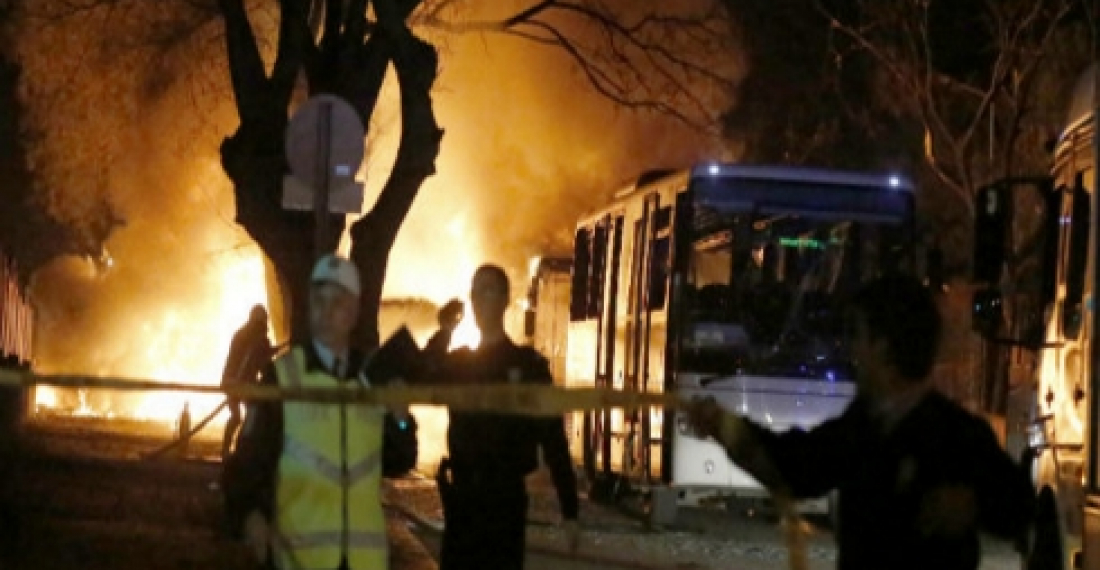Assailants on Wednesday exploded a car bomb near vehicles carrying military personnel in the Turkish capital, killing at least 28 people and wounding dozens others, officials said. The explosion occurred during evening rush hour in the heart of Ankara, in an area close to where military headquarters and parliament are located. Buses carrying military personnel were attacked while waiting at traffic lights at an intersection, the Turkish military said. Most part of those injured and killed are representatives of the armed forces.
Deputy Prime Minister and government spokesman Numan Kurtulmuş said 28 people were killed and 61 others were injured in the attack. He said the government has no information on who carried out the attack.
Davutoğlu was scheduled to depart for Brussels for a visit later this evening but he canceled the trip and headed to the presidential palace to attend a last-minute security summit. President Recep Tayyip Erdoğan chaired the meeting which was attended by the top commanders and senior government officials.
Erdoğan also postponed a planned visit to Azerbaijan after the bombing, presidential sources said on Wednesday.
Erdoğan, who was due to visit Azerbaijan on Thursday, called Azerbaijani President Ilham Alyev and told him it would not be appropriate to visit now, the sources said.
source: commonspace.eu with todayszaman.com
photo: Today's Zaman, (Mustafa Kirazlı)






